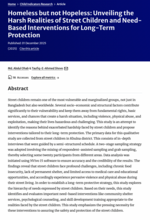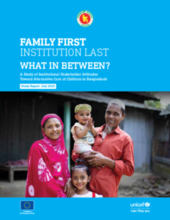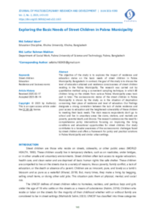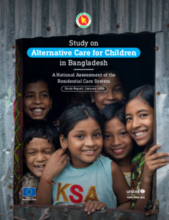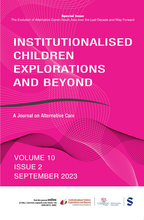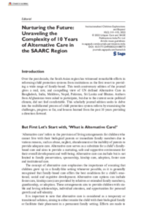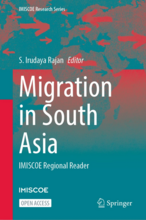Displaying 1 - 10 of 56
Street children in Bangladesh face chronic food insecurity, unstable shelter, limited access to health and education, and pervasive violence and abuse, as revealed through qualitative interviews with twenty children in Khulna district. Based on the hierarchy of needs expressed by the children, the study identifies essential long-term protection interventions, including community shelter services, psychological counseling, and skill-development training, and underscores the urgent need to implement these measures to ensure their safety and well-being.
This study is complementary to the alternative care assessment and explores the perceptions and attitudes of policymakers, judges, and frontline child protection practitioners toward alternative care in Bangladesh. It finds broad consensus that children thrive best in families, yet institutional care remains the default due to the lack of structured alternatives.
The objective of the study is to explore the impact of residence and education status on the basic needs of street children in Pabna Municipality, Bangladesh.
The long-term consequences of COVID-19 have been tough for children around the world, but even more so for young children already in humanitarian crises, whether due to conflict, natural disasters, or economic and political upheaval. Drawing on research and voices from the Global South, this book showcases innovations to mobilize new funds and reallocate existing resources to protect children during the pandemic.
Police start to interview witnesses following Guardian reports on adoptions to the Netherlands nearly 50 years ago
This landmark national assessment, led by the Ministry of Social Welfare and the Department of Social Services with UNICEF support, provides the first comprehensive mapping of residential childcare institutions across Bangladesh.
DHAKA, Nov 27 (Reuters) - An increasing number of Rohingya people are leaving refugee camps in Bangladesh with their children, taking to boats in search of a better life as hopes fade of returning to Myanmar or being rese
Based on the literature and observation, this article explores ideas on the alternative care of children, particularly relating to its modalities and challenges in the context of Bangladesh. The authors opine that the children’s best interest cannot be achieved when a group grows without quality care.
In this editorial, Ian Forber-Pratt, editor of this tenth anniversary edition of the Institutionalised Children Explorations and Beyond, gives an of alternative care in Bangladesh, India, Maldives, Nepal, Pakistan, Sri Lanka and Bhutan.
This paper examines South-South migration by investigating the stay-behind families of female migrants in Bangladesh with a focus on their unaccompanied children.

